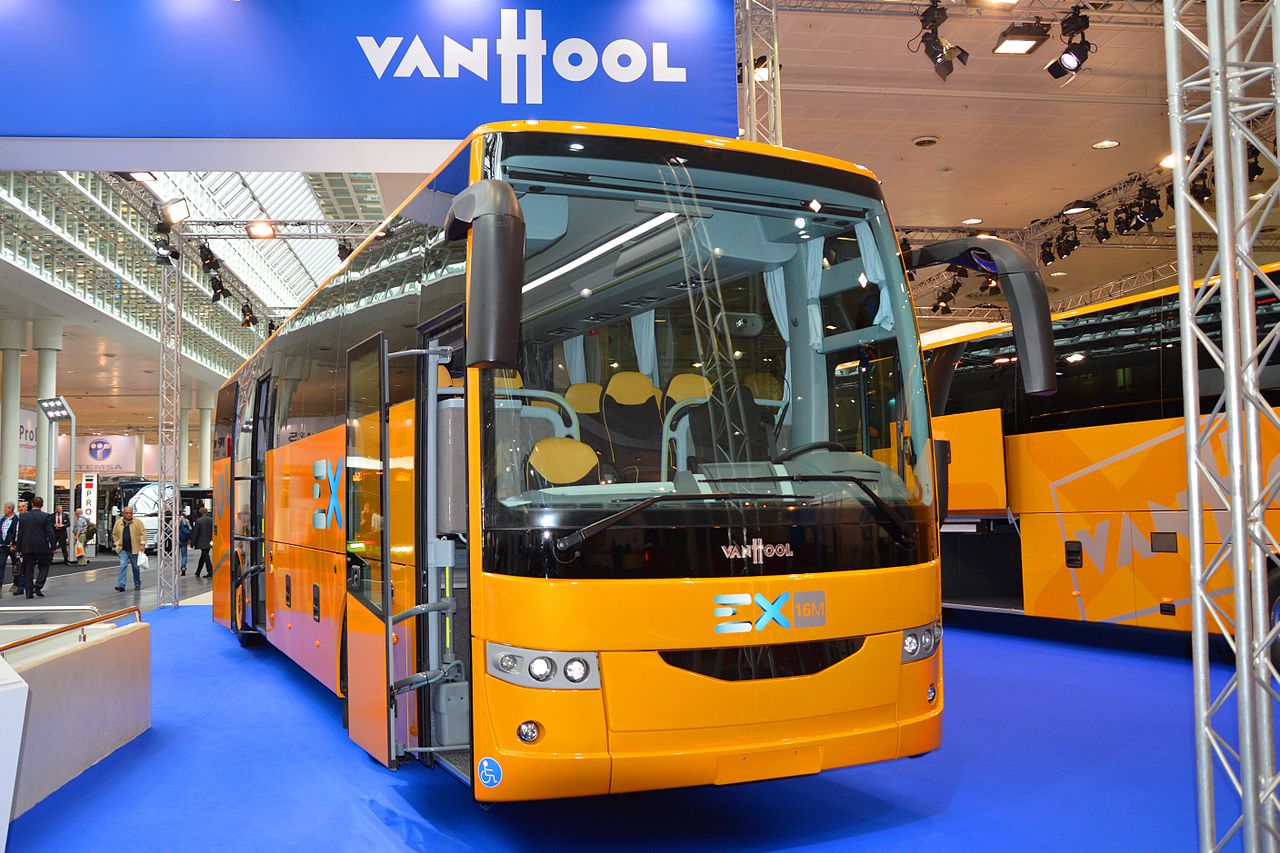
Flemish Procurement Policy and the case of Van Hool: Undermining European Industrial Sustainability

In
Early January, vehicle producer Van Hool – once a Flemish industrial crown jewel – missed out on a tender for 92 electric buses ordered by the Flemish public transport company De Lijn. Thanks to its low pricing, Chinese carmaker Build Your Dreams (BYD) won the tender instead.
*****
Flemish Procurement Policy and the case of Van Hool: Undermining European Industrial Sustainability
Early January, vehicle producer Van Hool – once a Flemish industrial crown jewel – missed out on a tender for 92 electric buses ordered by the Flemish public transport company De Lijn. Thanks to its low pricing, Chinese carmaker Build Your Dreams (BYD) won the tender instead.
This outcome did not come as a surprise. De Lijn gave a 70 per cent weight to the criterium of price in its tender. The questionable quality of the Chinese buses (which the Netherlands experienced firsthand) had already been criticised earlier this year. The Flemish choice in its public procurement process has moreover been depicted by some as a form of indirect support for Chinese state capitalism.
The spokesperson of De Lijn sugar-coated the outcome of the tender by stating that, both in terms of sustainability and price, BYD had the best hand. Afterwards it turned out that the Chinese company was at the back of the pack of six candidates – including Van Hool and several other European manufacturers – both in terms of post-purchase guarantees and of sustainability. This weak position clearly did not outweigh the bargain. The Chinese offer was around 20 per cent cheaper than the five equivalents.
Currently, Van Hool is on the brink of bankruptcy and more than a thousand jobs in its Koningshooikt production centre are hanging by a thread. Flemish politicians are lining up to regret the loss of what used to be a Flemish industrial heavyweight and are trying to mobilise a new lifeline for the company. Christian Democrat and Flemish minister of work, economy, innovation, and agriculture Jo Brouns criticized the Flemish bus builder’s dependence on Chinese batteries and called for a strategic reflection on European autonomy. In his opinion, the shrinking European manufacturing industry transcends the national level and action must hence be taken supranationally.
In its function as president of the European Council, Belgium showed itself quite combative too, stating that industrial policy, economic security, and long-term competitiveness should be the European top priorities on the political agenda. According to the Belgian presidency, this necessitates the reduction of harmful foreign dependencies and the promotion of technological leadership. But how credible are these courageous words exactly when Flanders cannot even deliver on them at local level?
This is not a plea for tailor-made tenders, nor is it a dismissal of Van Hool’s bankruptcy on De Lijn’s ultimate choice for the Chinese alternative. This is an indictment of a Flemish procurement policy that is clearly at odds with every pillar of the current European package on strategic autonomy and economic security.
First and foremost, the choice for BYD was made while an investigation by the European Commission is ongoing into how Chinese government subsidies are unfairly putting pressure on the European automotive industry. Pursuing a strong industrial policy without tackling foreign distortions of competition is like building a house on quicksand: useless. In other words, while European efforts are being made to tackle Chinese dumping and illegal subsidising, De Lijn chose to give a considerable weight to price in its tender, thereby encouraging such unfair trade practices.
Secondly, sustainability and post-purchase guarantees, with a respective weight of 10 and 20 percent in the tender, were not only considered of much less importance, De Lijn simply selected the weakest player in this respect. Finally, economic security was fully left out of the
equation. Concerns surrounding the dominance of Chinese inverters in solar panels on Flemish roofs have not yet come to an end, and the Flemish government seems already willing to import a new potential security problem.
Caroline Nagtegaal, Dutch Member of Parliament at the Renew Europe Group, aptly described Chinese electric vehicles as “computers on wheels”, pointing to the potential risk of foreign hacking and data leakage. In critical and sensitive sectors such as transport and mobility, such considerations should be taken into account, especially when it comes to public procurement.
While a lost tender may not be the only reason for the financial problems Van Hool is currently facing, this case does painfully illustrate the hypocritical split between the Belgian political discourse, prioritising a sustainable, strategic, and safe Europe, and the Flemish procurement policy failing to take these objectives seriously.
This article was first published in Dutch in De Morgen.
(Photo credit: Wikipedia)